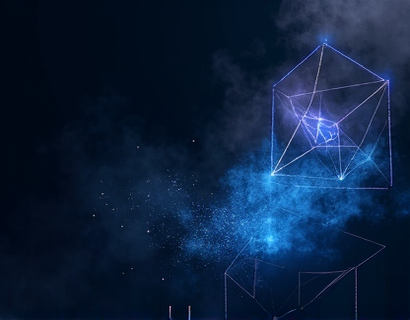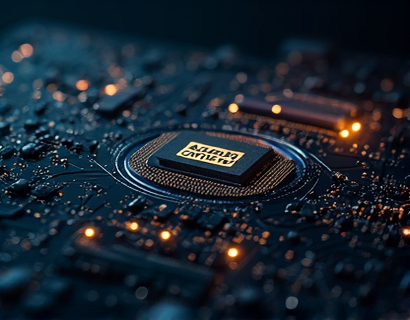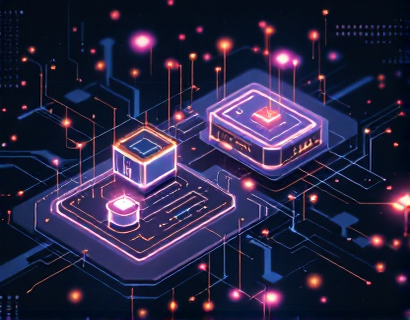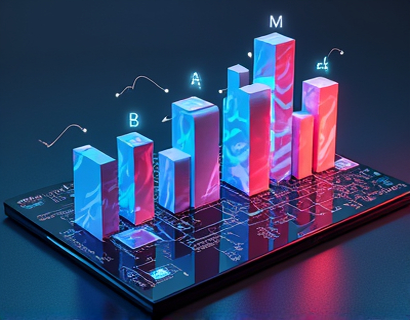Blockchain Oracle Management: Enhancing Decentralized Applications with Advanced Data Integration and Smart Contract Solutions
In the rapidly evolving landscape of blockchain technology, the role of oracles emerges as a critical component for connecting decentralized applications (DApps) with external data sources. This article delves into the transformative software solutions that revolutionize oracle management, focusing on advanced data integration and smart contract capabilities. By optimizing these aspects, the platform ensures secure and reliable interactions within DApps, unlocking the full potential of blockchain technology.
Oracles serve as the bridge between the blockchain and the outside world, providing essential data that smart contracts need to function effectively. Traditional oracle solutions often face challenges such as data latency, security vulnerabilities, and limited scalability. These issues can undermine the trust and efficiency of DApps, making the need for advanced oracle management solutions more pressing than ever.
Understanding Oracle Management
Oracle management involves the processes and tools used to integrate external data and services into blockchain networks. This includes data validation, transformation, and delivery to smart contracts. Effective oracle management ensures that DApps have access to accurate, timely, and secure data, which is crucial for their operation and user trust.
The core functions of oracle management include data sourcing, data validation, data routing, and error handling. Data sourcing involves identifying and connecting to reliable external data providers. Data validation ensures the integrity and accuracy of the data before it is fed into the blockchain. Data routing determines how data is transmitted to smart contracts, while error handling manages any discrepancies or failures in the data flow.
Challenges in Traditional Oracle Management
Traditional oracle solutions often struggle with several key challenges. One major issue is data latency, where there is a significant delay between data being available externally and its incorporation into the blockchain. This delay can render the data obsolete, reducing the effectiveness of smart contracts that rely on it.
Security is another critical concern. Oracles are potential entry points for attacks, as they interact with external systems. If not properly secured, these points can be exploited, leading to data tampering or smart contract failures. Additionally, scalability remains a challenge, as many oracle solutions cannot handle the high volume of data required by large-scale DApps.
Interoperability is yet another hurdle. Different blockchain platforms and smart contract languages often require customized oracle solutions, complicating the development process and increasing costs. This lack of standardization can hinder the widespread adoption of blockchain technology in various industries.
Advanced Oracle Management Solutions
To address these challenges, advanced oracle management solutions have emerged, leveraging cutting-edge technologies to enhance data integration and smart contract functionality. These solutions focus on reducing latency, improving security, and ensuring scalability and interoperability.
One key approach is the use of decentralized oracle networks. These networks aggregate data from multiple sources and use consensus mechanisms to validate and deliver accurate data to smart contracts. By distributing the data sourcing and validation process across multiple nodes, decentralized oracles minimize the risk of single points of failure and enhance security.
Another innovative solution is the implementation of machine learning algorithms for data prediction and anomaly detection. These algorithms can predict future data trends and identify unusual patterns, allowing for proactive error handling and more reliable data delivery. This not only reduces latency but also improves the overall accuracy of the data provided to smart contracts.
Data Integration Techniques
Effective data integration is fundamental to the success of blockchain-based DApps. Advanced oracle management solutions employ various techniques to ensure seamless data integration. One such technique is real-time data streaming, which allows for continuous data updates without the need for periodic polling. This method significantly reduces latency and ensures that smart contracts always have access to the most current data.
Data transformation is another crucial aspect. Raw data from external sources often needs to be formatted and structured to fit the requirements of smart contracts. Advanced oracle solutions include robust data transformation engines that can handle complex data mappings and conversions, ensuring that the data is compatible with the blockchain environment.
Furthermore, data aggregation plays a vital role in managing large volumes of data. By consolidating data from multiple sources into a single, unified feed, oracle solutions can simplify the data handling process for smart contracts. This not only improves efficiency but also reduces the computational load on the blockchain network.
Enhancing Smart Contract Capabilities
Smart contracts are the backbone of DApps, executing predefined actions based on the data provided by oracles. Advanced oracle management solutions enhance smart contract capabilities by providing more reliable and diverse data inputs. This leads to smarter and more autonomous contracts that can make informed decisions in real-time.
One significant enhancement is the support for complex data types and structures. Modern oracle solutions can handle not only simple data formats but also structured data, JSON objects, and even binary data. This flexibility allows smart contracts to interact with a wider range of external services and data sources.
Another advancement is the integration of off-chain computation. By offloading certain computational tasks to external servers, smart contracts can focus on high-level logic and decision-making. This approach not only improves performance but also reduces gas costs on the blockchain network.
Security and Trust in Oracle Management
Security remains a paramount concern in oracle management. Advanced solutions implement multi-layered security protocols to protect against various threats. These protocols include encryption for data in transit and at rest, secure authentication mechanisms for data providers, and regular audits to identify and mitigate vulnerabilities.
Trust is also a critical factor. Decentralized oracle networks enhance trust by allowing multiple independent sources to validate data. This redundancy ensures that no single source can manipulate the data, providing a higher level of confidence for DApp users.
Transparency is another key aspect. Advanced oracle management platforms often provide visibility into the data sourcing and validation processes, allowing developers and users to track the origin and integrity of the data. This transparency builds trust and accountability within the blockchain ecosystem.
Case Studies and Real-World Applications
To illustrate the practical benefits of advanced oracle management, consider a few real-world applications. In the financial sector, decentralized lending platforms rely on accurate market data to set interest rates and execute trades. By using advanced oracles, these platforms can access real-time market prices, ensuring fair and efficient transactions.
In the supply chain industry, blockchain-based tracking systems use oracles to gather data from IoT devices and other external sources. This data, when integrated seamlessly into smart contracts, enables real-time monitoring and automated compliance checks, enhancing transparency and efficiency.
Another example is in the gaming industry, where in-game assets and economies can be powered by blockchain. Oracles provide the necessary external data, such as player statistics and market trends, to create dynamic and engaging gaming experiences.
Future Trends and Innovations
The field of oracle management is rapidly evolving, with several promising trends on the horizon. One such trend is the integration of Web3 technologies, which will further enhance the interoperability and user experience of blockchain-based applications. Web3 oracles will seamlessly connect DApps with a broader range of external services, from social media platforms to cloud storage providers.
Another area of innovation is the development of self-sovereign identity oracles. These oracles enable users to manage their digital identities on the blockchain, providing secure and decentralized authentication for various DApps. This not only enhances privacy but also empowers users to control their personal data.
Lastly, the convergence of blockchain with other emerging technologies, such as the Internet of Things (IoT) and 5G networks, will open new possibilities for oracle management. The increased connectivity and data generation from IoT devices, combined with the high-speed capabilities of 5G, will enable more sophisticated and responsive oracle solutions.
In conclusion, advanced oracle management solutions are pivotal in unlocking the full potential of blockchain technology. By addressing the challenges of data latency, security, scalability, and interoperability, these solutions ensure that DApps can reliably and efficiently interact with external data sources. As the blockchain ecosystem continues to grow, the importance of robust oracle management will only increase, driving innovation and adoption across various industries.










































